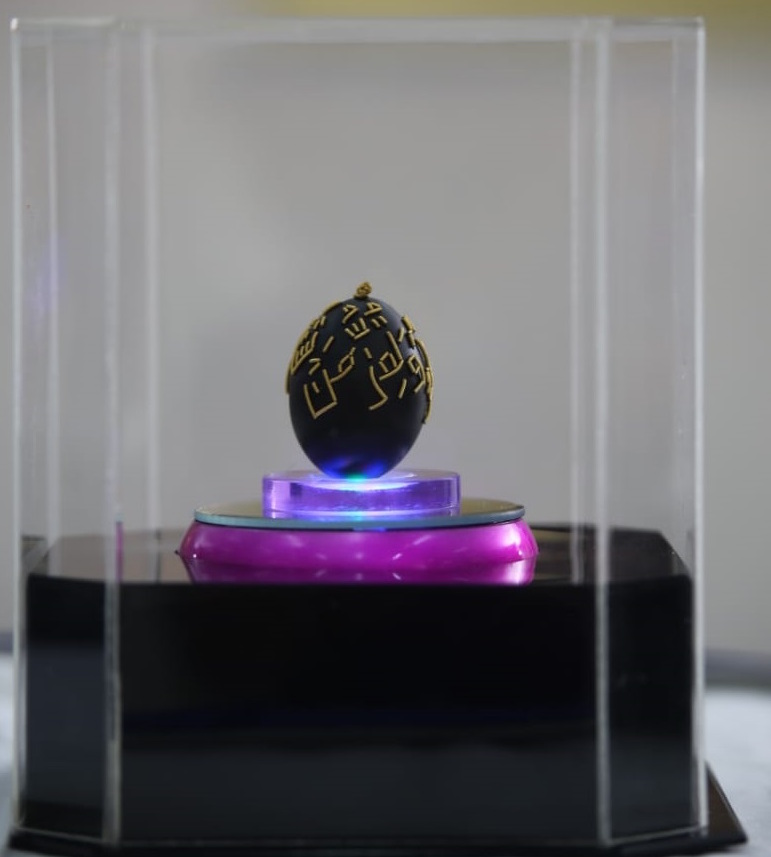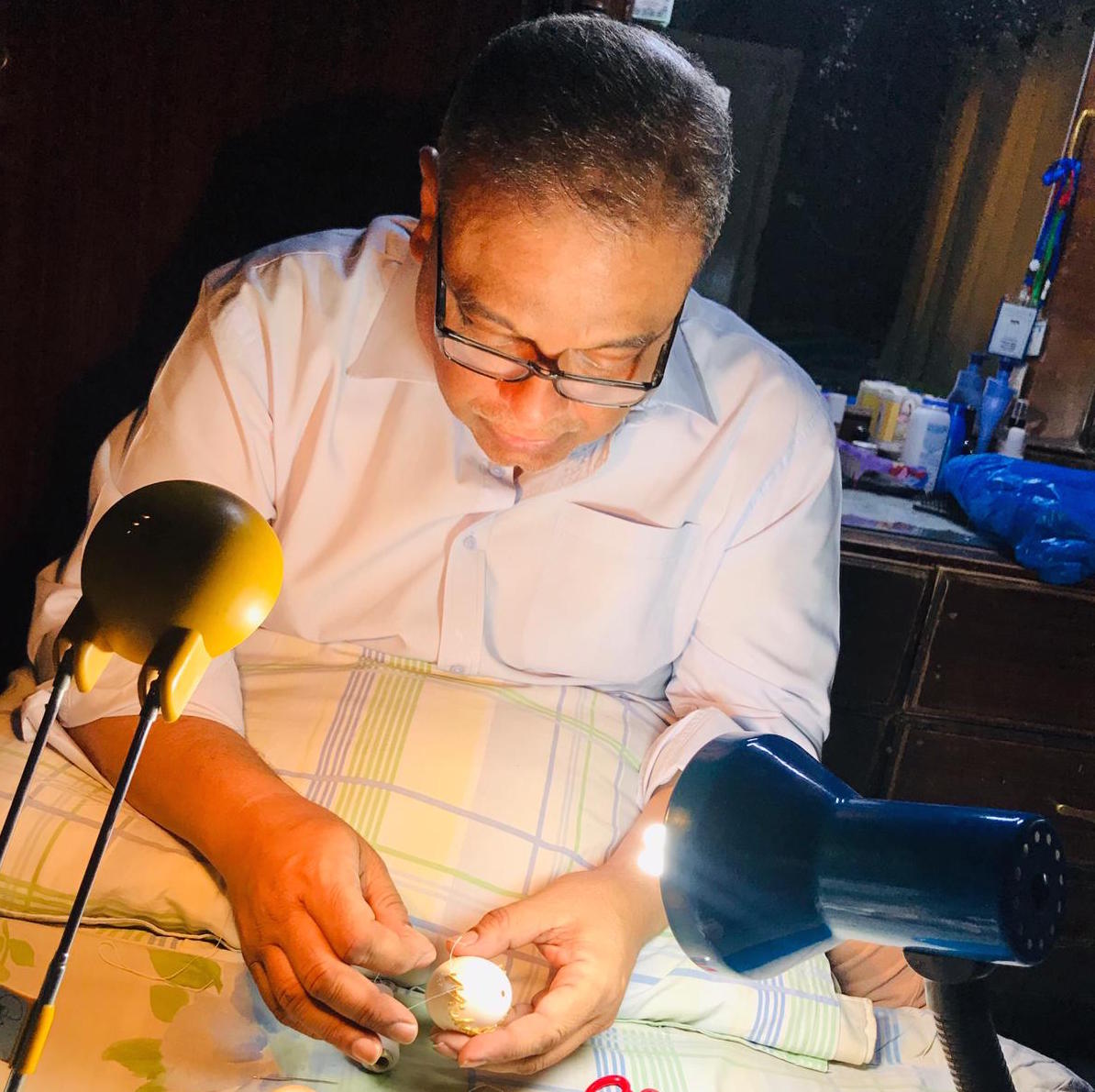KARACHI: In 90’s Karachi, when killings over political and ethnic rivalries had reached new heights, armed gangs and drug barons carved out turfs and people woke up daily to sacks of dead bodies dumped in the streets, a young police officer found his escape.
Reeling from the grief of losing friends and fellow cops to the seemingly unending violence, Adeel Uddin turned to a unique art passed down to him by his father: thread calligraphy on the most delicate of canvases, eggshells.

Islamic calligraphy on an eggshell by Karachi police officer Adeel Uddin who inherited the skills from his father. May 8, 2019 (AN Photo)
For hours each night, Adeel would sit by lamplight, pricking minute holes into the fragile surface of eggs and then needling rich threads through the perforations until they formed words.
He is now a senior inspector posted in Karachi’s upmarket Clifton area, and his craft, he says, has seen him through years of bloodshed in a city that has held the grim distinction of being one of the country’s deadliest.
“My life has been equally about dealing with gun shells and eggshells,” Adeel, 53, told Arab News at his home in Karachi, a teeming port city on the shores of the Arabian Sea. “Several of my colleagues were killed during those violent days. There was so much stress for policemen and our families.”
Amid the chaos, Adeel’s father, an insurance man and himself an acclaimed calligrapher who has presented his work to the likes of Saudi King Faisal bin Saud, US President Dwight D. Eisenhower and Pakistani President Ayub Khan, told him: “Son, your police job must not stop you from mastering this art, and passing it on to my grandchildren.”

A photograph, taken on May 8, 2019, of Vakil Uddin, an insurance man, presenting a special eggshell to Saudi King Faisal Bin Saudi at Frere Hall Karachi in 1966. His son Adeel Uddin carried on the craft after him. (Photo provided by Adeel Uddin)
And so by day, Adeel fought crime in a city awash with armed gangs but by night, he worked under lamplight in his bedroom, intricately inlaying thread into the enameled surface of eggshells and preparing piece after piece of ‘egg art,’ each one more intricate than the last.
It takes around 36 hours to complete one eggshell, Adeel said, adding that it was impossible to work longer than six hours consecutively on the form of calligraphy he practiced.
To date, Adeel has held five exhibitions in Pakistan and one each in Dubai and London. One piece, he said, could go for anywhere between $200-700.

A photograph, taken on May 8, 2019, of Vakil Uddin and his son Adeel Uddin presenting a decorated eggshell to the President of Pakistan, Farooq Ahmed Khan Leghari at the State Guest House Karachi in August 1997 ( Photo provided by Adeel Uddin)
“It is my passion but I’m doing it commercially also,” he said. When he retired from the police force in seven years, he added, he would devote himself to calligraphy full time.
Of the 75 eggs Adeel said he had sold so far, one sale was particularly memorable. In London, a woman bought an egg he had painted bright red and woven with a verse from the Qur’an in Arabic that read: “They are your garment, and you are a garment for them.” She wanted to gift it to her husband.

One of Adeel Uddin’s masterpieces, pictured on display on a special mount on May 8, 2019 (AN Photo)
“She was very keen to take it as it was about a husband and wife’s relationship,” Adeel said, smiling gently.
But not all eggs carry religious text.
“I have also written ‘happy marriage’ and other celebratory messages in English and Urdu on my eggs,” Adeel said, pushing his glasses up from the tip of his nose and adjusting the lamp on his desk, readying to begin work on a new piece. “If someone was to place an order for it, I would even write ‘Happy Valentine’s Day!”

Karachi police officer Adeel Uddin hard at work creating ‘egg art’ at his home in Karachi on May 8, 2019 (AN Photo)
















